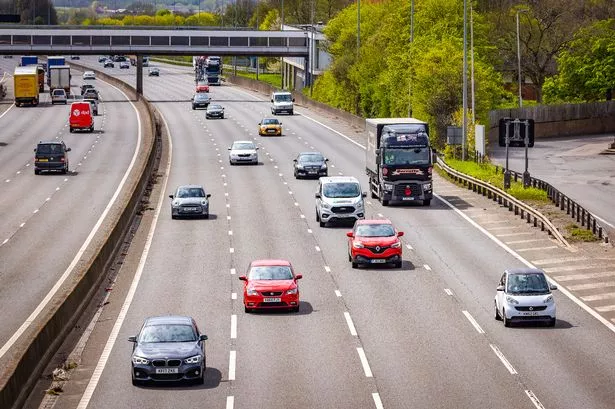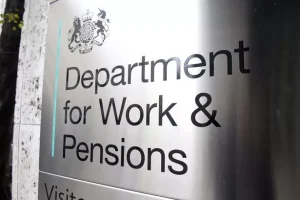Rachel Reeves Faces New Pressure Over £8 Billion Tax Hole as Electric Car Shift Looms.
The transition to electric vehicles (EVs) is gathering pace, but the UK Treasury is facing a significant dilemma. With the switch to electric cars accelerating, the government risks an £8 billion shortfall in fuel duty revenues by 2030. As a result, Rachel Reeves, the Chancellor of the Exchequer, is under growing pressure to explore new ways of taxing road users. One potential solution gaining traction is the introduction of a pay-per-mile scheme, a model already in place in countries like Iceland and New Zealand.
The £8 Billion Tax Revenue Gap: What Does It Mean for the UK?
The Climate Change Committee (CCC) has warned that the UK's fuel duty revenue could plummet by a third by 2030, leaving a significant gap in the Treasury's tax receipts. Fuel duty, which is levied on petrol, diesel, and other fuels, currently makes up around 2% of the UK's total tax receipts, amounting to roughly £25 billion annually.
However, as electric cars become more prevalent, the demand for traditional fuels is expected to fall. "If fuel duty remained at the same rate as today, falling demand for fuel for vehicles would result in revenues being about a third lower in 2030 than levels in 2023," the CCC report stated. With fuel duty frozen for over 15 years, Rachel Reeves faces the challenging task of replacing these lost revenues as part of the Labour Party’s push for a ban on petrol and diesel car sales by 2030.
Pay-Per-Mile Tax: A Solution Already in Practice Abroad
In light of this looming revenue gap, the idea of implementing a pay-per-mile system has been gaining momentum. Under such a scheme, drivers would be charged based on the distance they drive, regardless of whether they own petrol, diesel, or electric vehicles. Iceland and New Zealand have already adopted this model, and experts believe it could be a viable solution for the UK.
The government could also consider adjusting existing environmental taxes, such as carbon taxes or vehicle excise duties, to help incentivize the shift to low-carbon technologies. However, the challenge lies in finding a system that both encourages sustainable driving behavior and compensates for the lost fuel duty revenue.
The CCC’s Warning: A Gap in Environmental Taxation
The CCC's report highlights the need for the government to address the expected drop in fuel duty receipts. Environmental taxes, which represented 5% of total UK tax receipts in 2023, are already a significant source of revenue. These taxes include fuel duty (47%), vehicle excise duty (15%), renewable obligations (14%), and others like the UK Emissions Trading Scheme.
While the CCC suggests that future increases in fuel duty could help drive the transition to electric vehicles, such a strategy would only offer a temporary fix. The more sustainable solution could be to diversify tax models, such as moving toward pay-per-mile or expanding carbon taxes.
The Political Debate: Pay-Per-Mile Charging and London's Mayor
The debate surrounding pay-per-mile schemes has already made its way into the political spotlight. During last year’s London mayoral election, Labour’s Sir Sadiq Khan faced accusations from Conservatives that he was planning to introduce a pay-per-mile charging system for London drivers. Although Khan denied these claims and called them "lies," the issue raised important questions about the future of road-user charging.
In his book Breathe, Khan mentioned his interest in implementing a more comprehensive road-user charging system by the end of the decade. The Tories have since compiled a dossier of instances where the mayor or senior City Hall officials have referred to such a plan.
Looking Ahead: How Can the UK Adapt?
The UK faces a unique challenge in balancing the urgent need to address climate change while maintaining a sustainable tax revenue model. With electric vehicle adoption accelerating, the government will have to act quickly to replace the billions in fuel duty revenue that will be lost over the coming decade.
As the push for greener technologies intensifies, it’s clear that the government will need to explore innovative solutions, such as pay-per-mile schemes or alternative environmental taxes, to ensure the UK remains financially stable while also meeting its climate goals.
The pressure on Rachel Reeves and the government to find a balanced, effective solution is mounting, and the coming years will likely see significant discussions and developments in how the UK taxes road users in a world dominated by electric vehicles.
The transition to electric cars in the UK could lead to an £8 billion shortfall in fuel duty revenue by 2030. As the government works toward its climate goals, innovative solutions like pay-per-mile schemes may offer a way to address the tax gap. While such schemes have already been implemented in countries like Iceland and New Zealand, the political and economic implications for the UK remain significant.
Goldman Sachs drops its diversity rule, stating it has achieved its goal of fostering diverse boards





















